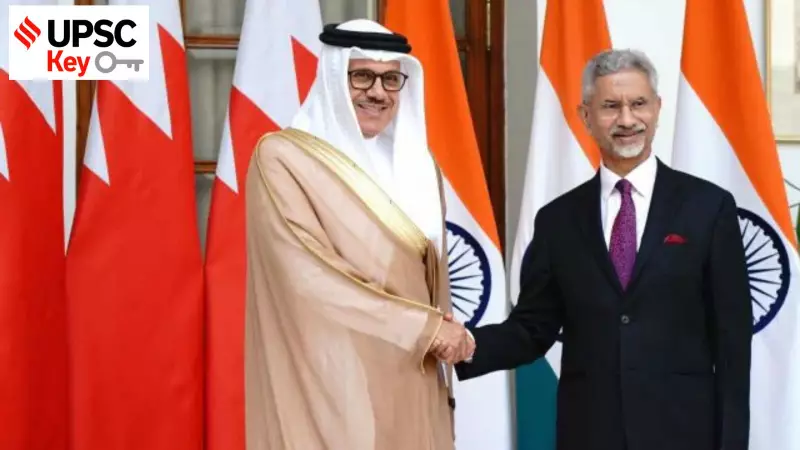
India's foreign policy landscape is witnessing significant developments across multiple fronts, presenting both challenges and opportunities for the nation's diplomatic corps. From the complex Afghanistan situation to strategic partnerships in the Middle East, here's a detailed analysis crucial for UPSC aspirants and foreign policy enthusiasts.
Afghanistan: The Diplomatic Conundrum
The recent earthquake in Afghanistan has thrown spotlight on India's delicate diplomatic positioning. While New Delhi has extended humanitarian assistance, the engagement remains carefully calibrated. The absence of formal diplomatic relations with the Taliban-led administration complicates direct aid distribution, forcing India to work through established international channels.
This situation presents a classic diplomatic challenge: balancing humanitarian imperatives with political realities. India's approach reflects its broader strategic calculus in the region, where maintaining influence while not legitimizing the current regime requires nuanced statecraft.
Bahrain: Strengthening Strategic Footprint
Simultaneously, India has been actively deepening its engagement with Bahrain, marking a significant expansion of its Middle East policy. The bilateral relationship has evolved beyond traditional economic ties to encompass strategic and security cooperation.
Key developments include:
- Enhanced defense and security collaboration
- Expanding economic partnerships beyond energy
- Growing Indian diaspora engagement
- Cultural and educational exchanges
This relationship exemplifies India's broader strategy of building multiple partnerships in the Gulf region, ensuring diversified engagement that serves both economic and strategic interests.
Earthquake Diplomacy: Soft Power in Action
The recent seismic events in the region have demonstrated the importance of disaster diplomacy in international relations. India's prompt response to regional earthquakes, including assistance to Afghanistan despite political differences, underscores the country's commitment to regional stability and humanitarian principles.
This approach serves multiple objectives:
- Demonstrates India's reliability as a regional partner
- Builds goodwill among affected populations
- Provides diplomatic openings in challenging relationships
- Enhances India's soft power credentials
UAE Relations: The Strategic Anchor
Parallel to these developments, India's relationship with the UAE continues to deepen across multiple dimensions. The comprehensive strategic partnership serves as a model for India's engagement with Gulf nations, combining economic complementarity with strategic convergence.
Key Pillars of India-UAE Partnership:
Economic Cooperation: From energy security to investment flows, the economic relationship forms the bedrock of bilateral ties. The UAE remains a crucial partner in India's energy security matrix while emerging as a significant investor in Indian infrastructure and technology sectors.
Strategic Alignment: Both nations share concerns about regional stability and counter-terrorism, leading to enhanced security cooperation. The relationship has evolved to address emerging challenges in West Asia and beyond.
Diaspora Connect: The large Indian community in the UAE acts as a living bridge between the two nations, facilitating people-to-people contacts and cultural exchange.
UPSC Perspective: Connecting the Dots
For civil services aspirants, these developments offer rich material for understanding contemporary Indian foreign policy. The interconnected nature of these relationships demonstrates India's multi-vector foreign policy approach, where engagements in one region often have implications for partnerships in another.
The evolving situation demands careful analysis of how India balances its principles with pragmatic considerations, manages great power competition in sensitive regions, and leverages its economic and soft power assets to advance national interests.
As India navigates this complex geopolitical landscape, its ability to maintain strategic autonomy while building constructive partnerships will be crucial for its emergence as a leading global power.





